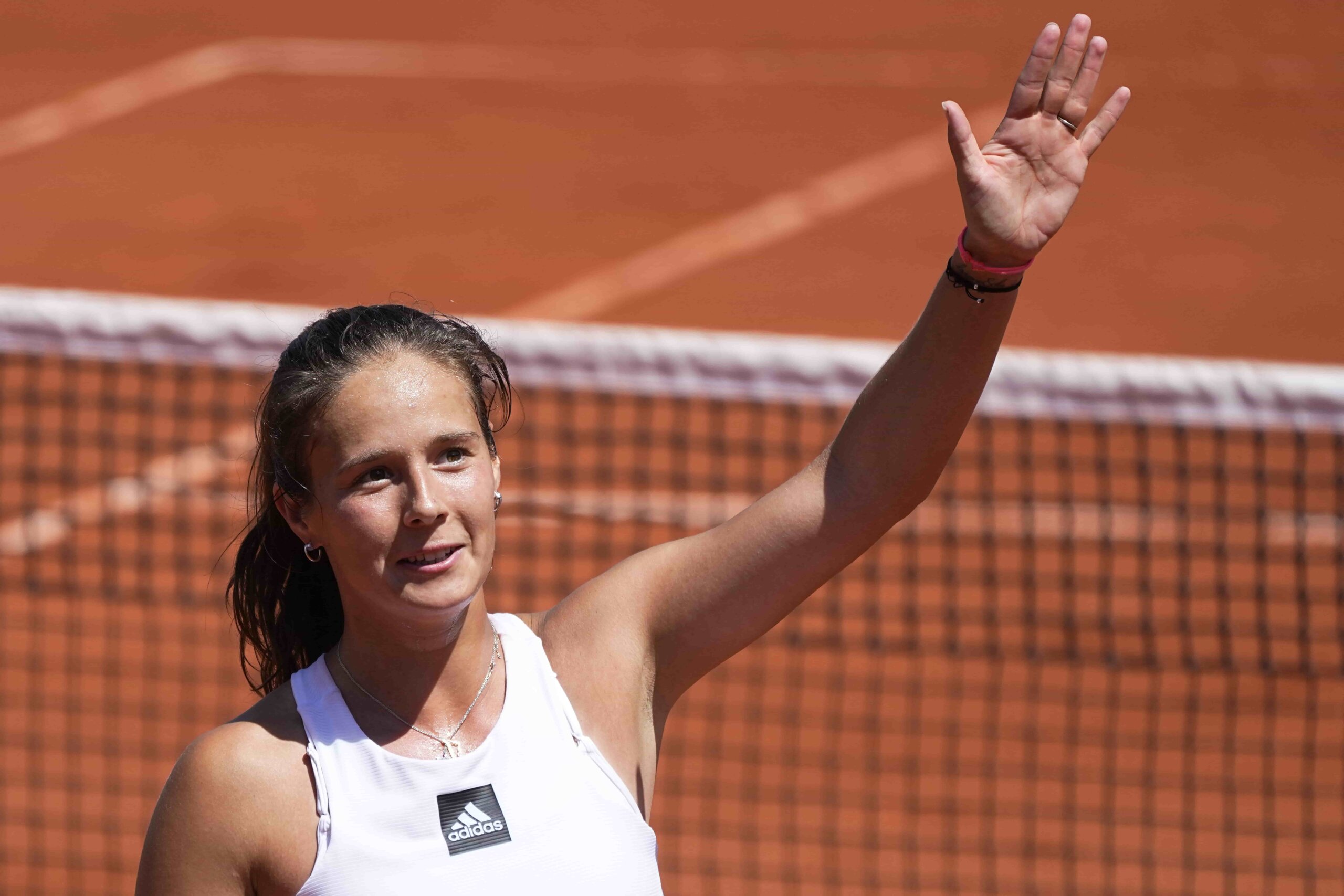Russia’s top female tennis star came out in a YouTube video this week as the country’s notoriously homophobic leaders prepare to crack down even further on LGBTQ+ life.
On July 19, 25-year-old Daria Kasatkina discussed her sexual orientation openly for the first time in a video interview with blogger Vitya Kravchenko. Kasatkina, who identifies as a lesbian, revealed that she’s currently dating 27-year-old figure skater Natalia Zabiiako, who was born in Estonia, but won a bronze medal as a member of the Russian Olympic team in 2019.
During an hour-long, sometimes emotional conversation, Kasatkina expressed that staying in the closet would have been “pointless” for her.
“Living in the closet is impossible,” she said in comments translated by the Irish queer outlet Gay Community News. “Not for the long run, no. It is too hard. You will be completely focused on that until you choose to come out.”
Kasatkina, who is currently ranked no. 12 in the world and made the French Open semifinals earlier this year, is just the most recent Russian LGBTQ+ athlete to come out in recent months. Nadya Karpova, who has played with the Russian national team on more than a dozen occasions, came out as a lesbian while speaking out against the war in Ukraine during a BBC interview.
Karpova currently plays professional soccer in Spain, where she said that she has felt more comfortable being herself. Russia has some of the world’s most draconian laws targeting the LGBTQ+ community: in 2013, the country passed an anti-gay “propaganda” ban preventing the spread of information on “non-traditional sexual relationships” to minors. Last year, Russian lawmakers also outlawed same-sex marriage and banned trans adoptions in a series of constitutional amendments.
“I stopped being afraid of certain things, for instance, to speak out,” Karpova told the BBC. “I also understood that no one would blame me for living with a girl, and that there is no stigma here for being a lesbian.”
Kasatkina—who also lives in Spain at the moment—cited Karpova as a major inspiration in speaking about her sexual orientation publicly for the first time. The tennis star said that she was “happy” for Karpova, but was also glad for all the other girls who needed to see someone like her living their lives proudly and unapologetically.
But when asked if Kasatkina would feel safe holding her girlfriend’s hand publicly in Russia, she was doubtful that she and Karpova would ever be able to be out and visible in their home country.
“Judging by how things are going there, it will never be okay,” Kasatkina said.
Although Kasatkina’s coming-out interview was embraced by many fellow athletes, it’s unclear how it will be received in Russia, which is pushing to intensify its anti-LGBTQ+ laws. This month, lawmakers in the State Duma—the lower house of Russia’s parliament—proposed legislation that would expand the “propaganda” ban to prevent all adults from accessing pro-LGBTQ+ materials. The legislation currently applies solely to people under the age of 18.
Since it was enacted nine years ago, the law has been used to prevent virtually any form of LGBTQ+ organizing in Russia. The “propaganda” ban has been used as a pretense to shut down Pride parades, arrest LGBTQ+ activists and fine people for posting links to pro-LGBTQ+ stories on Facebook. The harsh laws even led a Russian university to threaten a student with expulsion for having a pink phone case.
The ban has also led to a rise in extrajudicial violence against Russia’s LGBTQ+ community. Hate crimes targeting queer and trans Russians doubled in the four years after the law was enacted, according to Reuters.
Despite the fraught political situation in Russia, Kasatkina was hopeful that other LGBTQ+ people would someday be able to come out in a way that felt comfortable and affirming for them. “Of course, it is up to you to decide how to do it, and how much you tell,” she said. “Living in peace with yourself is the only thing that matters, and f**k everyone else.”


 Why you can trust Xtra
Why you can trust Xtra


